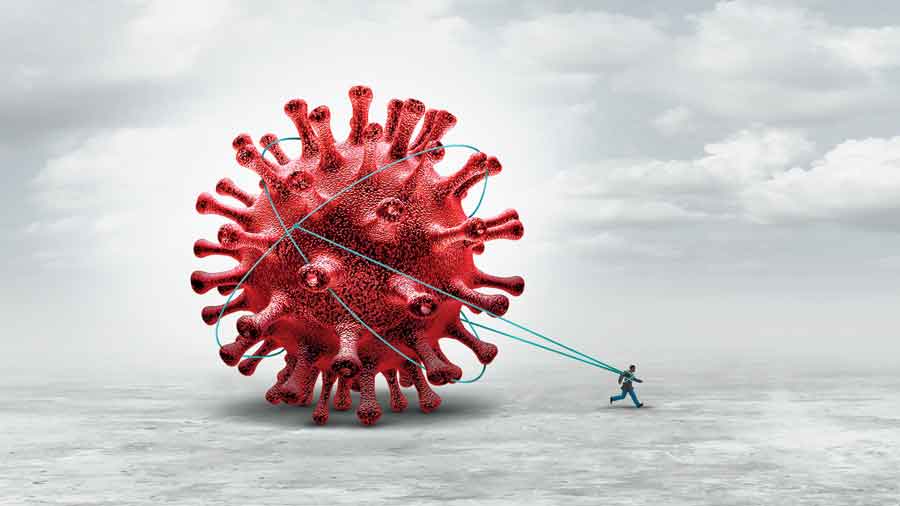The Omicron variant of the SARS-CoV-2 virus may have been transmitted from an animal species to humans, according to a study.
The research, published recently in the journal Proceedings of National Academy of Sciences, provides new insights into the evolutionary origins of Omicron.
An essential step in coronavirus infection occurs when spike protein, which helps the virus to infect the cells, binds to the host's receptor.
After establishing consistent infections in the host, the spike protein becomes adapted to the host's receptor.
The resaerchers carried out a detailed structural biology analysis of the SARS-CoV-2 Omicron variant.
They identified several mutations in the Omicron spike protein that were uniquely adapted to the mouse receptor and incompatible with the human receptor.
This suggests the Omicron variant might not have originated from humans directly, and instead may have been transmitted from other animal species to humans, according to the researchers.
"These Omicron mutations are evolutionary traces left by the virus during its transmission from one animal species to another", said study lead author Fang Li, from the University of Minnesota in the US.
"Our detailed structural biology approach has successfully recovered these subtle yet unique evolutionary traces," Li said.
The researchers noted that the COVID-19 virus is capable of infecting many animal species -- which is one of the main reasons why variants keep emerging.
"These findings also suggest that epidemic surveillance of rodents may be important for stopping new COVID-19 variants from emerging in the future", they said.
"Animal to human transmission of coronaviruses will likely continue to threaten global health. It has been suggested that all coronaviruses circulating in humans came from animals," said Li.
"I am working with my colleagues to address current and potential future coronavirus pandemics by developing therapeutics targeting both human coronaviruses and animal coronaviruses," the scientist added.











